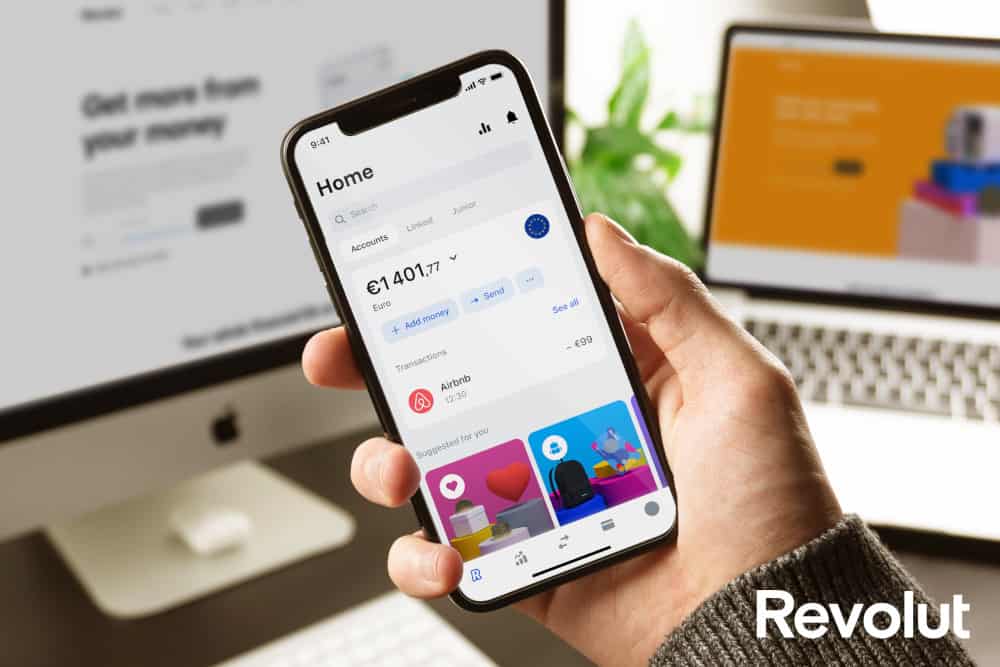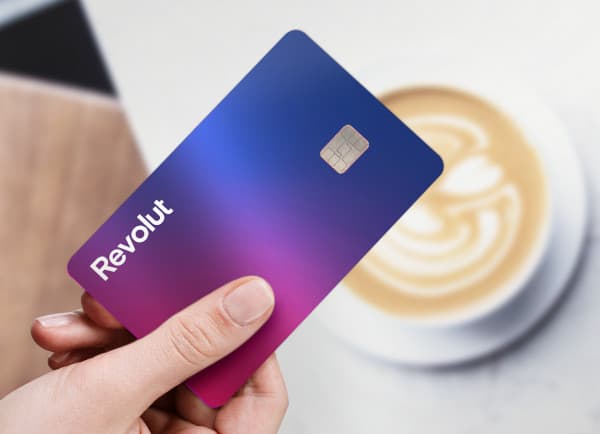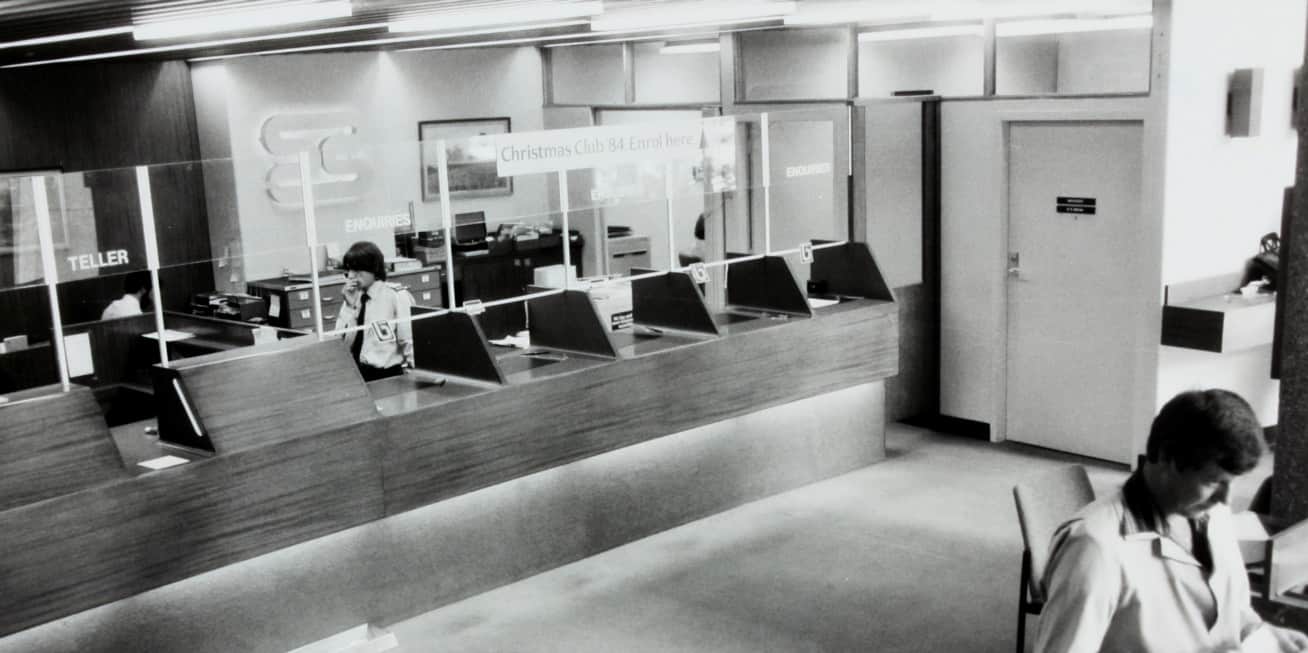Traditional To Digital Bank, Reasons To Change
Why would we even want to think about changing from the bank we’ve always been with, for years, maybe decades? Probably a traditional bank. The usual reasons for not changing are ‘personal service’, the ‘human touch’, maybe personal contacts, loyalty, perceived safety, etc. I’ll get to explaining how that all collapsed in a pile of rubble for me further down in the article here, ‘Traditional To Digital Bank, Reasons To Change’.
But first I’ll outline what change I made and all the amazing services I discovered that came with it. Then I’ll take a peek under the bonnet of banking as it was and as it is now, including the evergreen security concern. After that, the traditional bank fiasco.
Revolut

A friend of mine suggested changing to Revolut, as he was very happy with them. Revolut are currently one of the biggest of the new digital banks out there. So I opened an account with them – a quick and easy online process. Bear in mind Revolut are obliged to collect certain prescribed regulatory documentation (proof of identity, address and tax status) on opening an account. Have a look at Revolut’s website here for details about customer numbers, countries of operation and amazing range of services.
They are regulated and customer funds are insured in the normal way, same as traditional banks. Apart from basic banking that I was looking for I was delighted to discover an amazing range of additional services that I now use regularly, briefly listed below.
Mobile App and Web App
The main way we interact with the Revolut bank account is via the Mobile App. We use a passcode to access our accounts. The web app pretty much mirrors the mobile app.
It takes some effort, but not excessively so, to learn our way around the apps as the menu prompts are usually a word or two, and not always obvious exactly what the developers had in mind. So, yes, as with most computer applications these days, some mind-reading is a good skill to develop. But it does get easier, and once we know our way around, all’s honky dory!
A plus though, Revolut ranges between quite quick and very quick to answer customer queries via the app. As distinctly opposed to my experience of trying to get answers from my traditional bank!
Home Screen
Here we can see balances, recent purchases and manage all our accounts. For example our local currency, foreign currency accounts, and carry out exchanges and transfers between them. A huge range of currencies, 29 according to their website, can be exchanged through Revolut and we can hold balances in these currencies.
Transfers and Payments
It’s super-easy to set up one-off or regular transfers from your traditional bank, if you want to stay with your traditional bank. Salaries, pensions, etc., can also be paid in.
Cards

We can opt for a range of card types, depending on the service level and features we want. I’ve opted for Premium for about €7 per month which meets all my needs, details here.
The card details such as number, validity dates, etc., are printed on the back of the card rather than the front – improved security from prying eyes, cameras on smart phones, ATM skimmers, etc!
There is a facility called ‘Disposable Virtual Cards’ which provides single-use virtual cards. I use these quite a bit as they are safer with online purchases.
In-shop payments are the same as with any other card, with some especially useful additional features. Some of the amazing settings in the app ‘Cards’ section are:
- freezing and unfreezing the card from in-app
- setting monthly spending limits
- online transactions, activate or deactivate (for security)
- location-based security, activate or deactivate
- swipe payments, activate or deactivate (for security)
- ATM withdrawals, activate or deactivate (for security)
- contactless payments, activate or deactivate (for security)
- contactless spending limit, reset to pre-set value (for security, €150 default)
- replace or terminate card (if lost, stolen or not delivered)
The contactless spending limit takes the fear out of RFID fraud as it can only be reset in-app once we are approaching the pre-set limit.
The card can also be set up on Google Pay.
Stock and Crypto Purchases and Sales
Just amazing! One can set up a stock portfolio and do commissionless stock purchases subject to limits, terms and conditions. Something I had never expected, and now I have a small portfolio of quality stocks that I like. I am not a trader, that’s for the birds, so I’ll just leave my picks there over the longer term, maybe adding more over time. Same for crypto.
I’m not a believer in Bitcoin. But I feel the Ethereum blockchain has enormous commercial potential over the longer term (smart contracts, proof of stake, etc.) so I have popped a modest sum into the Ether cryptocurrency for the long term, out of interest.
I haven’t checked for availability of ETF’s on Revolut, which are better options for 95% or more of private investors.
Travel Insurance and Airport Lounges
Revolut really keep hitting the button smack on! Low prices or complimentary airport lounges (on Premium and Metal plans) if flights delayed more than an hour. The travel insurance is valuable for me as I travel quite a bit and at my age travel insurance can be expensive. Doesn’t matter if I can beat probably 80+% of Millennials or Gen Zs to the top of a mountain any day!
Apparently pet insurance is also available now!
Foreign Currencies and International Payments
I have to mention foreign currencies again, a great service and great exchange rates. There can be a fee for uncommon currencies or outside market hours. International payments are a doddle.
Banking – The Way It Was…
Traditional banking, for what it was, used to work ok when most transactions were in bank notes and coins. Nowadays the vast, vast majority of wealth is simply electronic and online commerce rules the roost. For example, according to the Bank of England in 2020 only 4% of UK money was held physically as notes and coins. The other 96% was held electronically in accounts. You can’t touch it, feel it, or hand it to a teller / cashier. But it works the same way as cash, but better, faster, safer, etc.
Banks and The Internet
Banks also use the Internet even between themselves, albeit ‘belt-and-braces’ secure connections, to manage and transfer vast amounts of money. It is the connections which are secure, and that’s the important thing. Same for our Internet connections with our bank accounts. Read up on encryption, secure authentication and strong password protection if you want more details. It all works if done properly.
Steady As We Go…
Some people won’t change no matter what. That’s just the way it is and that’s ok, each of us make our own choices. And those who do change will have a multitude of reasons.
I didn’t have any major problems with my (traditional) bank for years. Things just rolled along in a normal boring routine way. I fitted in the ‘normal’ pigeon-hole, which is what traditional banks seem to like. In other words, predictable, standard, routine, etc. Standard fees like modest monthly account management charges and such like were just non-issues. I had bigger fish to fry.
New Road Ahead…
Then the routine changed. More travelling and looking ahead to what life after the 9-to-5 routine might look like, just a year or two down the road. Some extended travel.
Precedent and Pre-Notified
Over a short time span, weeks not months, the service from the bank fell apart completely. It caused real problems and was no fun at the time. It wasn’t as if I hadn’t already travelled to the self-same countries before, used my cards, etc., without any problems whatsoever.
Still worse, I had even phoned the bank before I travelled, telling them where I was going, and asked if that was any problem. Their person-to-person response: “no problem at all sir, it’s within the EU, we don’t even need to know, your cards and services will operate perfectly normally”. Great! Or not!
Here’s what happened.
Traditional Bank Fiasco
A week or so after departure an email from the bank arrived in my in-tray. No phone call, no SMS, just one of loads of emails to arrive that day: “To keep you safe, we are sending you a replacement card. You’ll receive a new card from us soon, as a safety measure, to replace the one ending with xxxx”.
Very inconvenient. Made a call to the bank HQ to find out what was going on, I was told, “Don’t worry sir, your existing card will be valid for another week so you will have no problems”. So I gave them the Airbnb address where I would be for another week. The person said they would send the replacement card by express personal delivery. Rushed out with my card to get some cash at an ATM. It was rejected, with “Unable to complete this transaction” message. Went to another ATM, same problem. Fortunately I had brought some cash, should be ok for the next week or so.
Broken Promises
They didn’t send the card express. I had moved on from that Airbnb when it arrived, and had to make a return trip to the original Airbnb to pick the card almost 2 weeks later! Fortunately it worked ok. Business as normal now, hopefully.
Traditional Bank, Double-Snafu

Then I needed to book an onward flight to my next destination. Guess what, when I got to the ticket payment stage: “Unable to complete this transaction” message. Frantic call to the HQ Card Fraud section, same BS, “we picked up possible fraudulent activity on your account”. A short blunt conversation later with some bureaucrat, my card was re-activated and I was able to make the ticket purchase, fortunately. Neither on this occasion, or previously where they had cancelled my card, were they prepared to discuss what ‘possible fraudulent activity’ they had seemed to notice. Most likely some computer-based alert based on my travel that they were not even prepared to assess and validate, call or send an sms – just reject the transaction. In other words, “little customer be damned”! Too much trouble for them.
But, it didn’t end there either.
Show Stopper, Circus Finale
About 10 days later I got a message from the first Airbnb owner that another letter had arrived for me from ‘The Bank’! Yet another unplanned and inconvenient journey back to pick it up and find out what it was all about. It should have been an apology and compensation for inconvenience caused.
But no. This letter proceeded to say it appeared I was no longer tax resident in my home country and I must complete and submit a form plus a load of witnessed documentary proof regarding my tax residency within 30 days. There was even more later, an unpleasant and arrogant encounter at my domicile branch, but they had already well and truly demonstrated their incompetence and unprofessionalism.
About four years later, they are still sending letters to an old, long-vacated address saying they still needed the completed tax residency documentation. Seems some businesses just don’t learn.
Goodbye Traditional Bank
Needless to say they got the boot, ignoring ridiculous tax residency information demands. Many traditional banks are fine I’m sure, but the above shows they don’t all offer good personal service or deserve our patronage.
Of course boneheaded incidents such as these from traditional banks have gifted the more modern and adaptable digital banks with tens of millions of happy customers world wide, and increasing at an enormous rate. Bravo.
Main Takeaway
For these types of things to happen in a major institutional banking business, clearly boards of directors and executive management are disconnected from reality and from the day to day operations of the business. Good reason to regularly gauge any bank’s fitness for purpose and worthiness of our loyalty and custom. There are always many possible alternatives to choose from.







